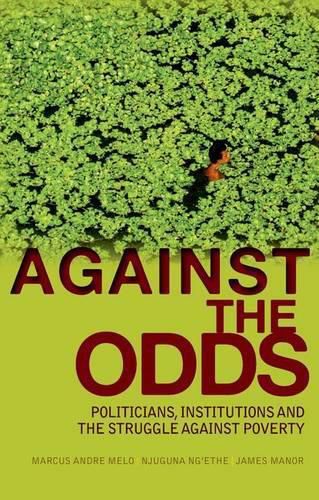Readings Newsletter
Become a Readings Member to make your shopping experience even easier.
Sign in or sign up for free!
You’re not far away from qualifying for FREE standard shipping within Australia
You’ve qualified for FREE standard shipping within Australia
The cart is loading…






Against the Odds is a Machiavellian study of the machinations of three senior politicians in quite different developing countries who adroitly played the tough political game in ways that reduced poverty. The three–former President Fernando Henrique Cardoso of Brazil, President Yoweri Museveni of Uganda, and Chief Minister Digvijay Singh in the Indian state of Madhya Pradesh–had scarcely heard of one another, and never communicated. And yet they used a broadly similar repertoire of political devices - persuasion, distractions, bargaining, stealth and pressure - to pursue broadly similar goals.
They demonstrated two crucial things: poverty reduction is politically feasible, even in the teeth of daunting economic and political constraints; and it is politically beneficial to those who achieve it, since it enhances their popularity, legitimacy and influence. If leaders in other developing countries who are naturally preoccupied with their own political interests recognise these things, then serious efforts to reduce poverty will become more common elsewhere.
$9.00 standard shipping within Australia
FREE standard shipping within Australia for orders over $100.00
Express & International shipping calculated at checkout
Against the Odds is a Machiavellian study of the machinations of three senior politicians in quite different developing countries who adroitly played the tough political game in ways that reduced poverty. The three–former President Fernando Henrique Cardoso of Brazil, President Yoweri Museveni of Uganda, and Chief Minister Digvijay Singh in the Indian state of Madhya Pradesh–had scarcely heard of one another, and never communicated. And yet they used a broadly similar repertoire of political devices - persuasion, distractions, bargaining, stealth and pressure - to pursue broadly similar goals.
They demonstrated two crucial things: poverty reduction is politically feasible, even in the teeth of daunting economic and political constraints; and it is politically beneficial to those who achieve it, since it enhances their popularity, legitimacy and influence. If leaders in other developing countries who are naturally preoccupied with their own political interests recognise these things, then serious efforts to reduce poverty will become more common elsewhere.